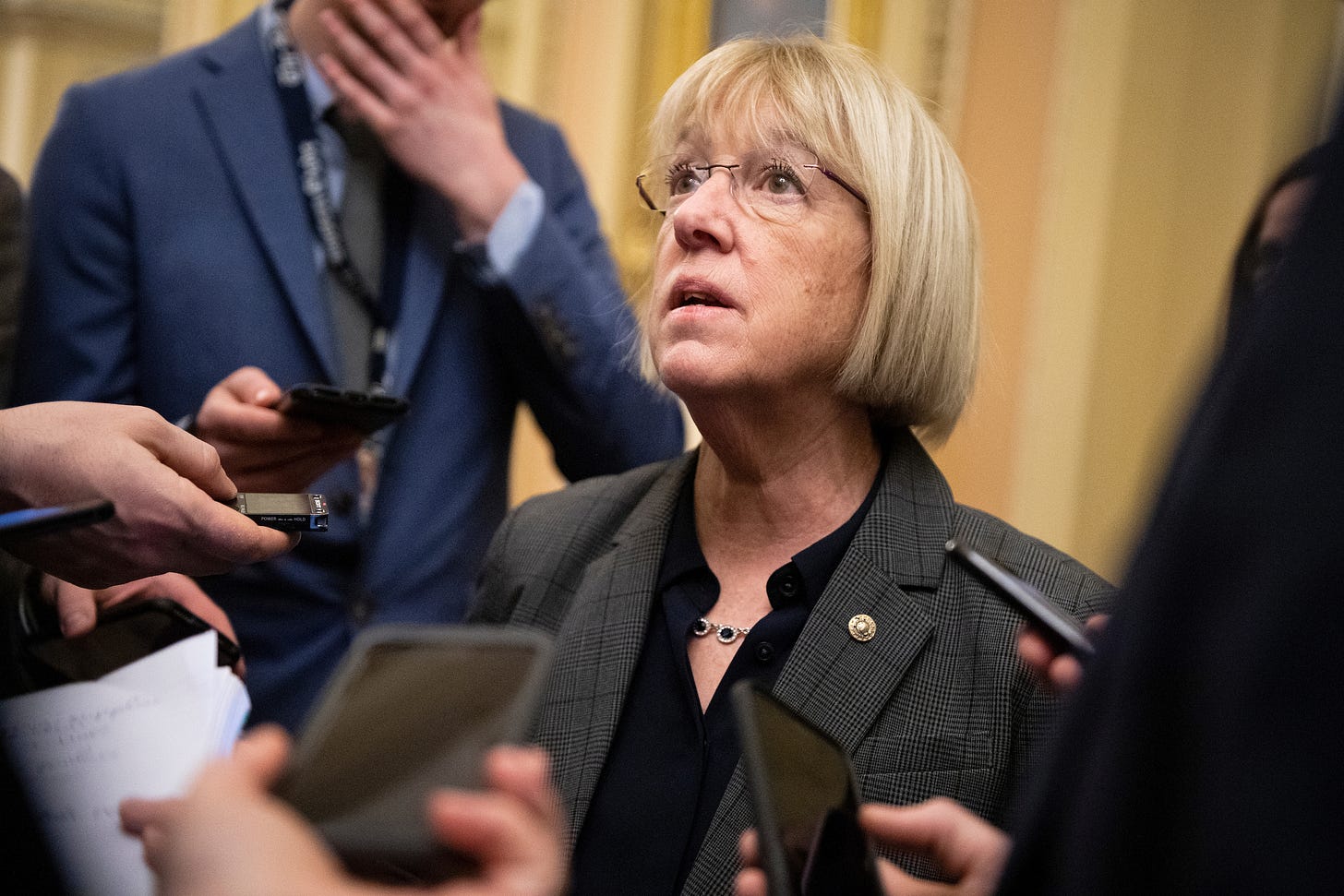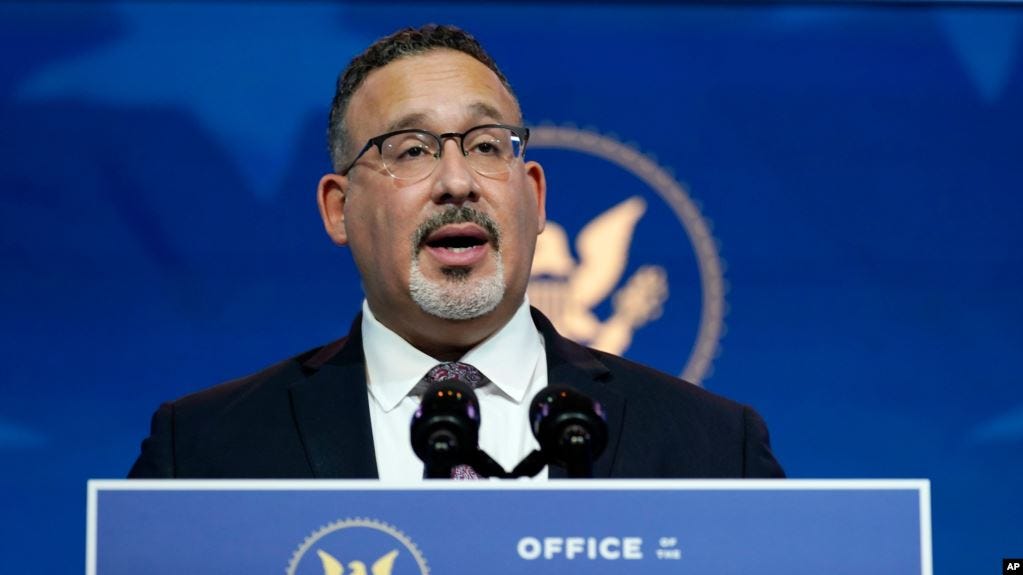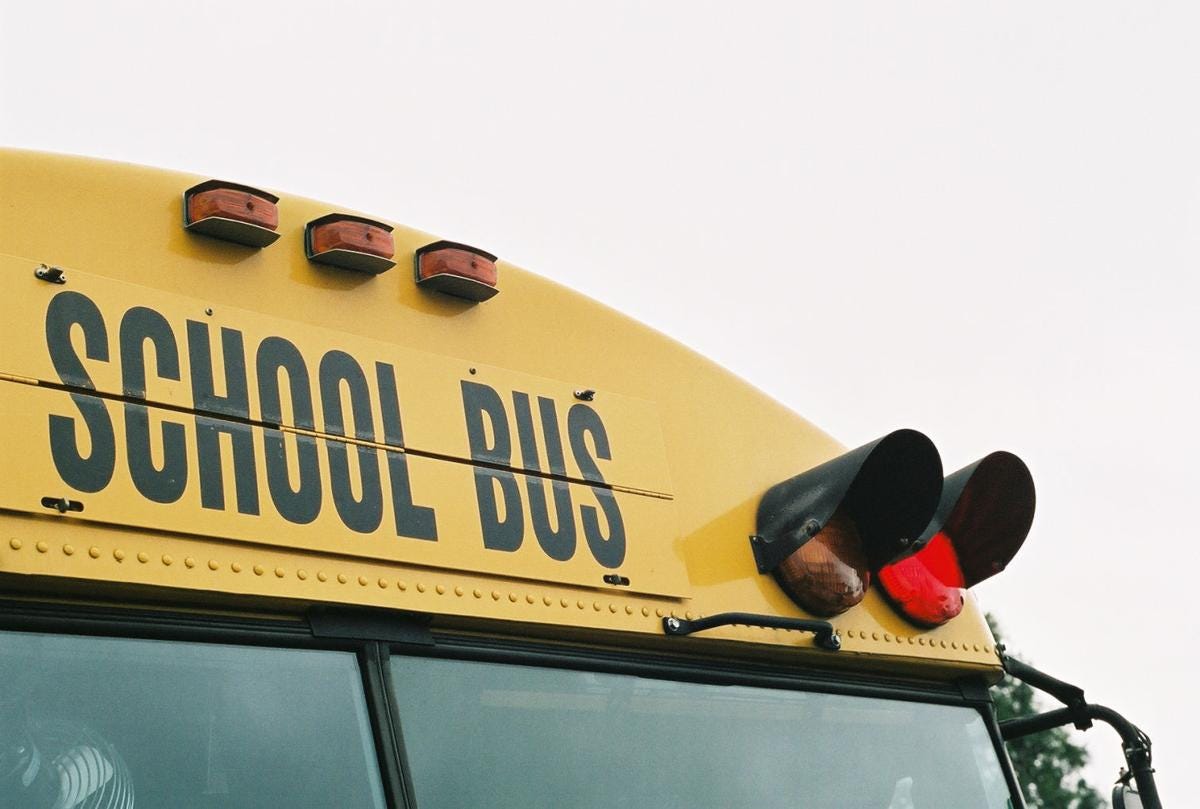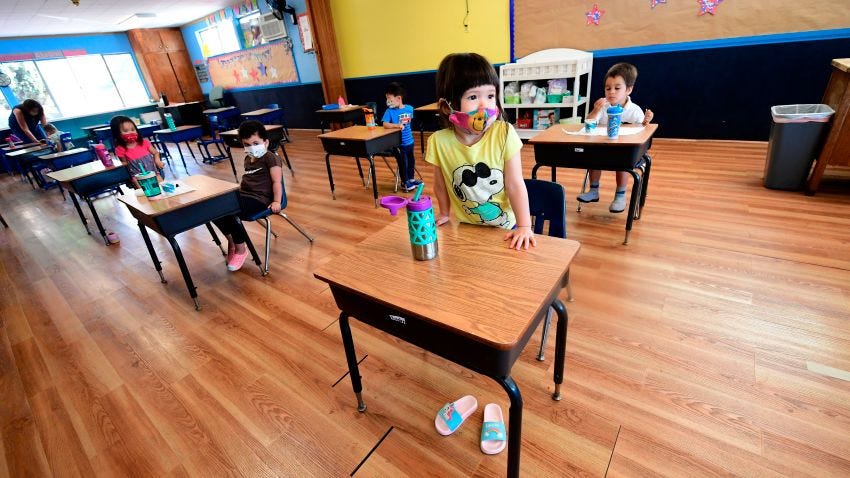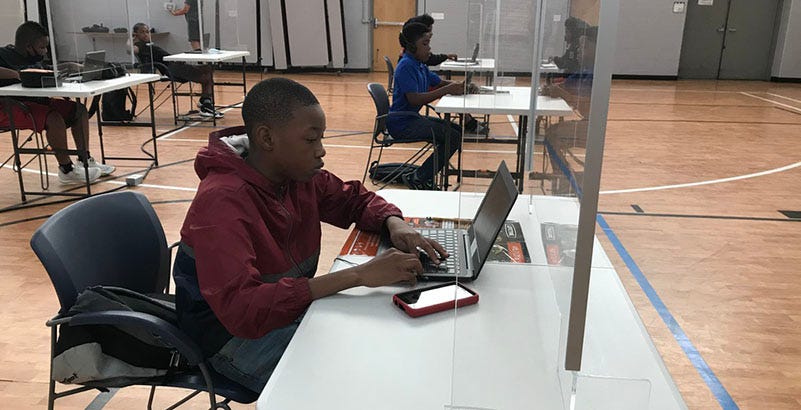It is the first Education Policy Hotlist in 2021 and countless top news stories have come and gone (and come again). Over the past three weeks we’ve seen Congress pass another economic relief package, a new vaccine (and variant strain of COVID), who President-elect Joe Biden has chosen to serve as Secretary of Education, Georgia turn blue, and a riot at our nation’s capitol.
As a parent, like many of you, my interpretations of these events are through the filter of my children’s eyes. When I found myself without words for my fourth grader who was curious about the events in DC last week, her teacher was there with an authentic voice. My daughter reflected with her class, wrote, and communicated her reactions about the violent siege at the Capitol. I was thankful for my community, our teachers, who skillfully facilitated how future leaders will interpret and learn from this moment in time — teachers are doing that.
After sitting in my own reflections I have three things on my mind:
Our country’s democracy will recover for the better. I have faith in the future of our democracy, because of our children, our educators, and our communities . Witnessing our communities’ youth and young leaders address the racism, violence, and terrorism over the last couple months reminds me that our future is empathetic, passionate, and brave.
Education may be headed into a renaissance or a revolution. With well-liked and thoughtful leadership in place at the federal level, we might see a balance of authority and control between state and federal education governance. As such, education leaders, policymakers, and advocates must be ready to determine if this synergy will result in us reliving times that reified inequities or leveraging the moment to incite an education revolution.
Regardless of distance, we must find a way to connect more with other humans. Social distancing is here to stay for a while, so social connections through honest communication, building trust, and authentic relationships are all we have. I have posited that 2021 is my year of “thank you, more please” because I am starving for meaning — finding innovation through addressing this mess together, truly coming together.
In the words of our new Education Secretary-designate, Miguel Cardona:
“There is a saying in Spanish, En La Unión Está La Fuerza. It means we gain strength from joining together. In that spirit I look forward to sitting at the table with educators, parents, caregivers, students, advocates, state and local tribal leaders. There is no higher duty of a nation led to build better futures for the next generation to explore.”
FEDERAL POLICY AND FUNDING
The second round of CARES Act relief funds are headed out to states ($54.3B), governors ($40.5B), and childcare providers ($10B). There is still uncertainty about the extent to which these funds will be enough to help our education leaders address pressing challenges, including the potential for unfinished learning.
There is still uncertainty about the extent to which these funds will address unfinished learning. @cmtpitts @usedgov #EdFunding #EdPolicy
Education Secretary Betsy DeVos resigns in wake of Capitol insurrection | Education Dive
Open Data Platform allows users to search by broad categories | USED
The economy lost 140,000 jobs in December, the first reported losses since April | Fortune
Summaries of sections in new COVID-19 relief package | Appropriations
Is $54.3B in COVID-19 relief funding enough for K-12 schools? | K12 Dive
NATIONAL EDUCATION POLICY
Education service providers, researchers, and policy and advocacy organizations are exploring how they should position themselves within Secretary-designate Cardona’s new federal education policy landscape.
#EdPolicy folks are positioning themselves within a new landscape for federal #EdPolicy; how will advocates, researchers, and leaders shake it up? @cmtpitts @teachcardona @usedgov
Insights into Education Secretary-designate Miguel Cardona | FutureEd
Cardona, A ‘Big Picture Thinker’ who is popular with teachers | The 74
The 2021 RHSU Edu-Scholar Public Influence Rankings | Ed Week
STATE AND LOCAL POLICY
District leaders are transitioning into fiscal planning season and working with state legislators and education agencies to advocate for new CARES Act funds uses. There are still other “business-as-usual” operations like curriculum and standards adoptions that must be addressed.
It is fiscal planning time for educators in a pandemic (which is weird), but we cannot overlook the business as usual decisions that many districts and states are facing, as well: think curriculum adoption and standards changes. @cmtpitts @DOEChancellor @MathiasForIdaho #EdPolicy
State Superintendent of Education Ayala proposed schools extend the school year | IL
Which NYC education issues are worth watching in state’s new legislative session? | NY
State education board takes first look at proposed new academic standards | ID
REOPENING SCHOOLS
Two studies were released over the past two weeks about the relationship between school reopening and COVID-19 cases and hospitalizations. While these data are useful, local education leaders will require a facilitated conversation with community members to determine priorities in reopening decisions.
Two studies released over the past two weeks on relationship between school reopening and COVID-19 cases and hospitalizations; findings are complementary, but require additional locally facilitated conversations about our community priorities. @KatharineStrunk @douglasharris99
To What Extent Does In-Person Schooling Contribute to the Spread of COVID-19? | EPIC
The Effects of School Reopenings on COVID-19 Hospitalizations | REACH
How the Federal Government Can Help Schools Reopen Safely | Future Ed
Pennsylvania Says Young Students Can Head Back to School | PA
RACIAL EQUITY IN EDUCATION
Education leaders are making short and long term decisions about how education monies will reify or dismantle our systemic inequities like teacher diversity, ethnic studies, and how we elevate the lived experiences of our Black, Indigenous, and Latinx students and families. Learning Policy Institute released a tool to help district leaders operationalize racial equity in local decision making.
We will be tested this year on how we elevate the lived experiences of our Black, Indigenous, and Latinx students and families through our #EdFunding & #EdPolicy decisions #edchat #teacher #racialequity @LPI_Learning @TheNext100 @cmtpitts
Diversify and Grow AmeriCorps for an Equitable COVID-19 Recovery | The Next 100
A Broken Pipeline: Teacher Preparation’s Diversity Problem | TNTP
Virginia Commission Reimagines African American History Education | VA
STUDENT ENGAGEMENT
Many educators and parents share the concern that our distanced learning is missing the connective tissue necessary for academic, social, emotional, and mental wellbeing: relationships. The students, schools, and communities who fare best post-COVID will likely be those who focused on establishing authentic relationships and engagement throughout COVID learning.
The students, schools, and communities who fare best post-COVID will likely be those who focused on establishing authentic #relationships and #engagement throughout COVID learning @cmtpitts @EdCommission @hgse @MetroSchools
Nashville’s ‘Navigator’ Tries to Keep Students in Remote Learning From Getting Lost in the System | The 74
ASSESSMENT AND ACCOUNTABILITY
As we begin the second half of the school year many schools will face the question about how they are monitoring student learning, especially those schools who are receiving federal funding. How will we know what learning occurred (or didn’t) and capture comparable data as we plan for spring and summer? The truth is that estimates and anecdotes may not be enough to build the just-in-time onramps to grade level learning for the 2021-2022 school year.
How will we know what learning occurred (or didn’t) and capture comparable data as we plan for spring and summer? The truth is that estimates and anecdotes may not be enough to build the just-in-time onramps to grade level learning #EdPolicy @cmtpitts @EdDataCampaign @ExcelinEd
Spring Exams Are the Best Shot State Leaders Have at Knowing What’s Happening With Their Students | The 74
Supporting states and schools must take priority over costly standardized testing | Education Dive
CCSSO Releases Statement on Assessment and Accountability Amid the Global Pandemic | CCSSO
State Schools Chiefs Push Biden for Wiggle Room on Accountability During Pandemic | Ed Week
Nation’s Largest Test Providers Answer Some Questions On Assessments During Covid | The Collaborative
Pandemic Offers Opportunity to Reduce Standardized Testing | Education Next
UPCOMIG EVENTS
Wednesday, January 13 (2:30 PM EST) The American Enterprise Institute for Public Policy Research webinar on The Next Conservative Education Agenda
Wednesday, January 13 (3-4 PM EST) National Coalition for Technology in Education and Training on A Virtual Convening: Student Learning in Online and Hybrid Environments
Friday, January 15 (10-11 PM EST) Fordham Institute webinar on Interdistrict open enrollment: A way to increase school diversity?
Dr. Christine M. T. Pitts serves as Manager of Research and Evaluation at Portland Public Schools. As an Oregonian, raised by a multicultural family of educators, she brings a decade of progressive strategic leadership experience, a transformative vision, and analytic skill to crafting state education policy. An educator and researcher by training, she has conducted legislation, governance, and policy analyses on a wide array of education issues using social network analysis and mixed methods research. In addition, Dr. Pitts is a facilitative leader who deeply understands and co-constructs local and national partnerships and convening across stakeholder groups. Dr. Pitts currently coordinates between state and national policy leaders to investigate and advocate for policies that prioritize equity in education. Christine lives with her husband and four children in Portland, Oregon. Follow her on Twitter @cmtpitts.






